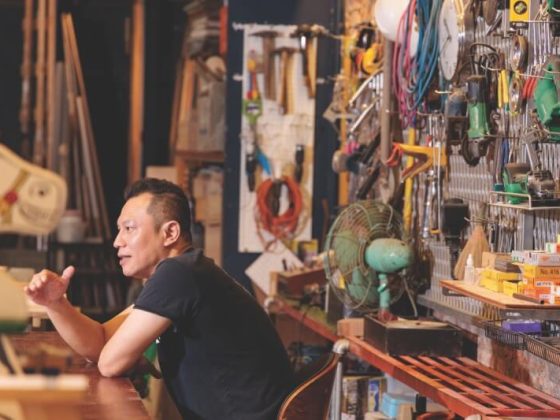Tofu is a key ingredient in many of the local delicacies in Taiwan. It is commonly found in everything from home-cooked meals to soups and even in desserts. On a global scale, tofu has become synonymous with healthy food in recent years — solidifying its indispensable role as the “white platinum” delicacy of traditional Asian cuisine and culture. (Read more: Herban Kitchen & Bar: A Western Vegetarian Oasis in Taipei)
In Taipei’s bustling Zhongshan District, there is a handmade tofu shop called Oneway (萬味豆府) tucked away in a local neighborhood. As the sun rises, unlike most office workers, for the shop owners Shan Yuan (單淵) and Yu Shuru (余淑茹), the day is not just about to begin, but already half gone. To ensure the quality and smooth production process, the couple works tirelessly day in and day out to bring delicious and healthy handmade tofu to many Taipei residents and visitors.
The Origins of Handmade Tofu
When asking co-owner Yu how she and her husband got into this business, her reply would surprise anyone. “In fact, it all started by accident!” she says. She goes on to tell us, “At the time, a friend had a counter at the well-known department store in Taipei, Breeze Center (微風廣場), selling organic vegetables and tofu, and asked if we wanted to take over. The original tofu chef had quit and they needed some help. But since I had only worked as a salesperson in the toy industry and my husband had worked professionally in the military, we really didn’t know a single thing about tofu.” Little did they know how quickly that would change.
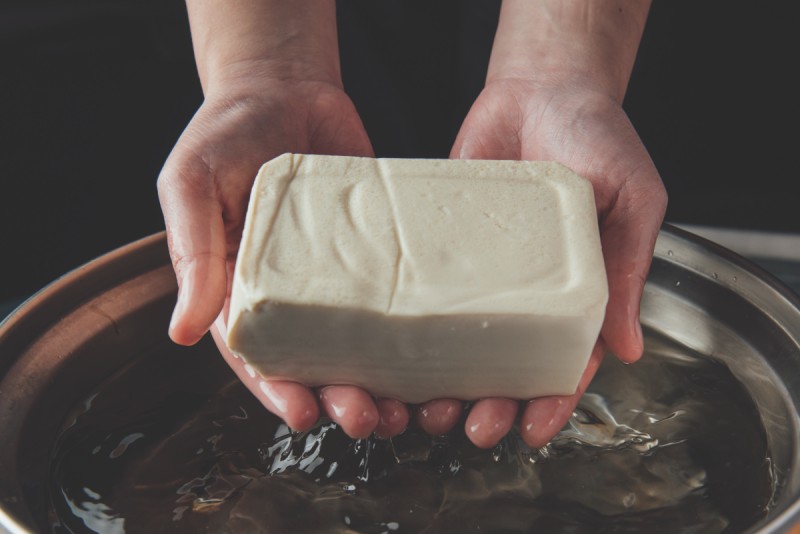
“Luckily, we’ve always been very proactive people. If we want to do something, we strive to do it well,” she tells us. Therefore, as a way to become more knowledgeable in the field, the couple spent a whopping NT$500,000 to learn tofu-making with a renowned Japanese master. “He taught us the basic concepts, and over the years, we’ve gradually mastered and refined the rest on our own,” Yu smiles proudly.
Later, with the onset of remodeling for the department store, the lack of counters in the new space forced the couple to venture out and open their own storefront.
“To be honest, it’s not much different from when we were in the department store,” Yu shares. “Just like there, we’d have to start work early in the morning at six o’clock. The only difference being that it’s our own store, so sometimes we can choose to sleep in a bit more!” she chuckles. It’s not always so easy, though. “In order to maintain the quality of our tofu in the back of the kitchen, the air conditioner can’t be running. But to accommodate the customers in the front, it has to be turned on! So, often, we’ll find ourselves catching a cold running back and forth from hot to cold. And in the wintertime, it’s particularly chilly, which is even harder when you have to cool down the tofu by sticking your hands into an ice-cold bucket of water!” she laughs.
Creating Unique Flavor with Soybeans
“Many people don’t realize that the single most important element affecting the taste of tofu is actually in the beans themselves. Therefore, we put a lot of effort into picking the right beans and only use non- GMO (Genetically Modified Organism) beans imported from the U.S. In the process, we also add very little water, thereby maintaining the bean’s unique richness and flavor,” Yu shares with us.
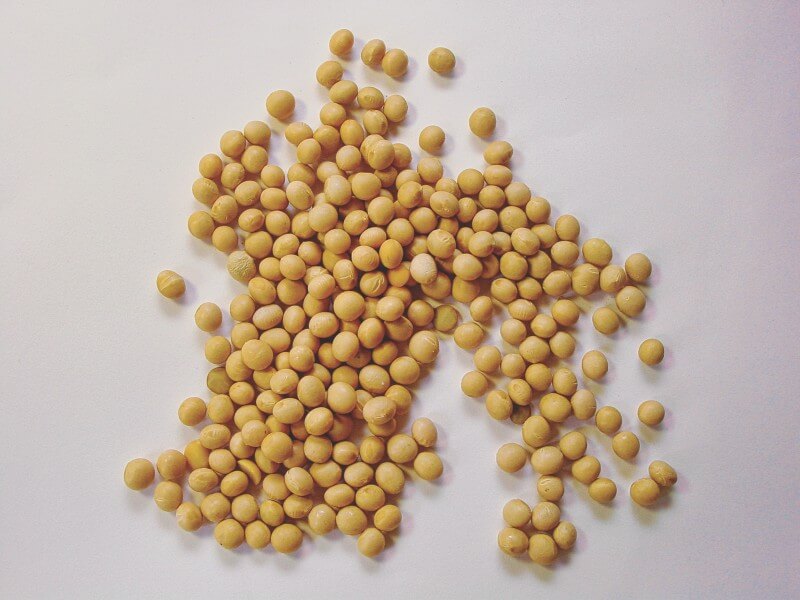
“It is also this very reason that our tofu exudes a very light fragrance, since we really add nothing else in the production process. And for customers coming in for the first time, I will almost always recommend them to try tasting the original flavor first in order to experience the most natural taste of tofu!” she exclaims.
A Detailed Production Process
Having run their own business for many years, Yu feels delighted and honored to share the essence of making tofu: “Actually, for all types of soy products, you must start by making soy milk first,” Yu tells us. “And in order to make soy milk, we first carefully select the best soybeans. The chosen beans are soaked, and then ground up, heated, and boiled the next day to make soy milk. The amount of water added during the heating process will affect the concentration, so if there’s too much water, it will be very thin. And likewise, if there is too little water, the concentration will be too high. After the soy milk is ready, we then add salt brine, which acts as a coagulant, to make the tofu,” she says.
“In fact, some people also just boil the beans directly into the milk after grinding, without straining them first. But I don’t like that grainy texture, so we also have a filtering process before cooking,” Yu tells us. She goes on to add, “But this step depends entirely on each person’s own preference! If you don’t mind the grainy taste, you don’t need to filter at all.”
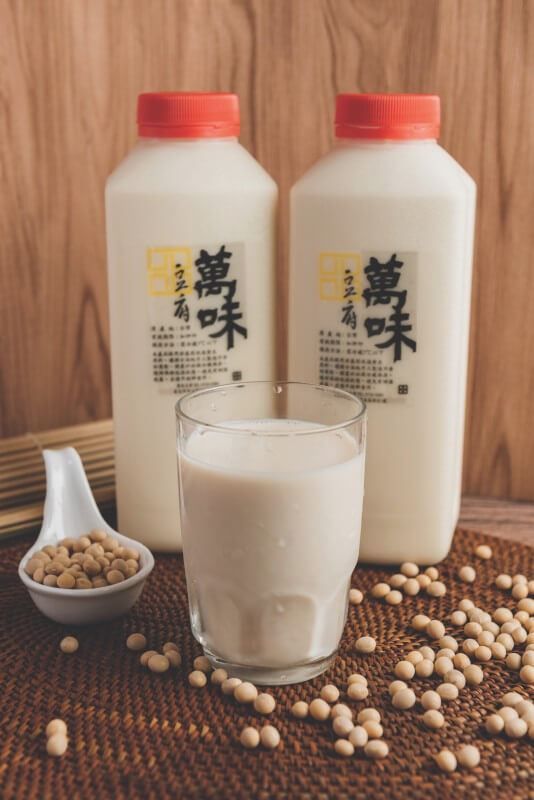
Yu further shares the production process of other soy products. She explains, “Dried bean curd is actually just the layer of skin that condenses on the hot soy milk upon cooling. Therefore, the thicker the soy milk is, the easier it is to form.” As for tofu pudding, it needs to be salted like tofu, but with a different amount. Additionally, because of its unique texture, it is necessary to add an oil or emollient in order to give the pudding its smooth, rich taste.
Facing & Overcoming Challenges
Although tofu is such a staple ingredient in Taiwan, it certainly doesn’t come without a price. Yu tells us, “Because soybeans are very sensitive products, they are particularly susceptible to changes in temperature and humidity, which can affect their overall flavor. What makes things worse is that Taiwan’s weather is ever-changing! It gets very hot in the summer, and with a lot of precipitation. Therefore, the production process is very difficult to control. Often, it is necessary for us to make adjustments based on the climate and circumstances.”
She goes on to share, “In fact, to be honest, most people can’t really taste the subtle changes in flavor, but we always strive to maintain our universal taste and quality — we just hope to do our best!”
Yu also tells us about their past failures. “Upon moving from Breeze Center to our own store,” she says, “we discovered that our entire batch of soy milk was destroyed and could not be sold at all! We later discovered that our store was not equipped in the same way as the department store was, so our production process had to be adjusted. Sometimes, these mistakes have to be experienced firsthand in order to gain the proper knowledge. It isn’t easy, but we don’t ever cut corners.”
A Variety of Oneway’s Soy Products
“Our signature item is silken tofu,” says Yu, “other special flavors we have also created include sesame tofu and matcha tofu. And we also have an amazing black soybean milk and almond-flavored tofu pudding as well. More importantly, we often roll out special flavors from time to time depending on the season!” she proudly shares.
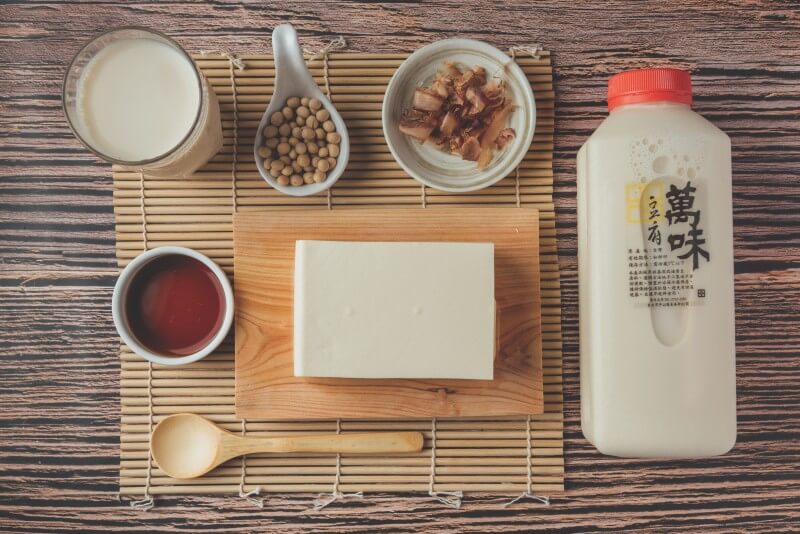
Although most of the products are made from the same ingredient, Oneway develops its featured tastes with extra thick soy milk. Yu has noticed that some of their customers even take the soy milk back home to heat up themselves just so they can create their own bean curd.
Before the vegan diet became a worldwide trend, soy products were an essential item, and were presented in different ways in Taiwanese cuisine for centuries. With their hard work in developing various products, Oneway offers a fresh take on tradition, enriching the already rich food culture in Taipei.
Recommendations for Cooking Handmade Tofu
– SILKEN TOFU
This is Oneway’s signature dish. According to Yu, it is the best way to taste the original flavor of the tofu. Depending on your personal preference, you can also add a dash of salt or soy sauce. Other ways of cooking include adding it to items such as hot pot, clay pot, or having it braised or fried.
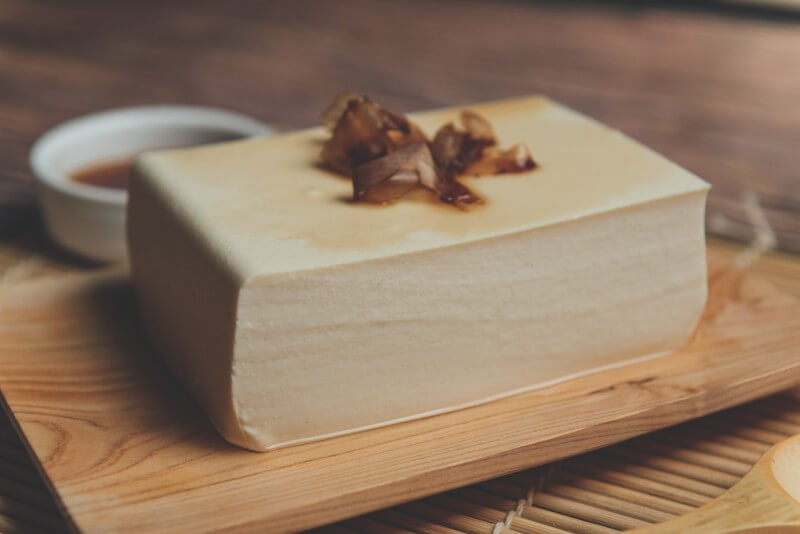
– DRIED BEAN CURD
The shelf life of Oneway’s tofu is only three days due to it being handmade, with no preservatives added. The dried bean curd can be frozen, however. Upon thawing, cut the bean curd, slightly pan-fry, and then simply add some soy sauce and cilantro. Celery and cucumber are also good options if cilantro is not available. For vegan customers, the scrambled eggs in Taiwan’s classic tomato and scrambled eggs dish can be substituted with scrambled bean curd instead.
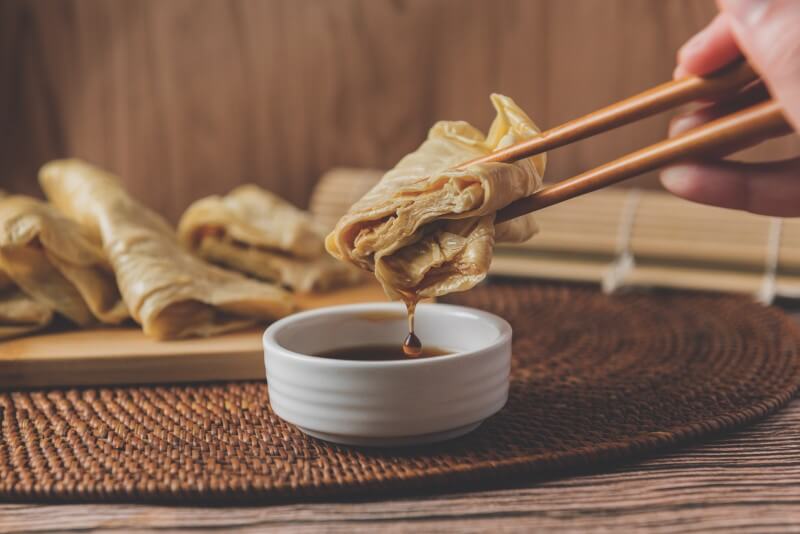
– TOFU PUDDING
Using the most natural almond flour, Oneway’s almond tofu pudding is simple yet light! It is delicious when boiled with sugar in water, adding a syrupy taste. If the richness of soy milk is what you prefer, you can also just soak it in soy milk instead and enjoy!
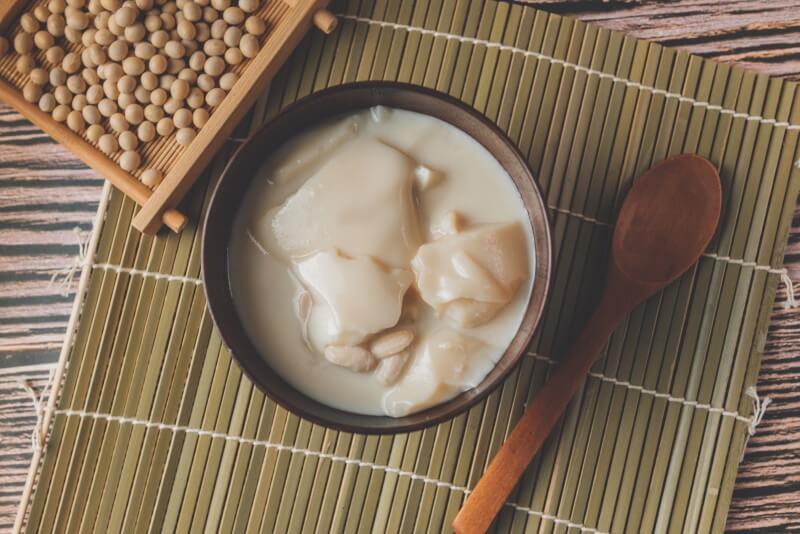
Author Catherine Shih
Photographer Samil Kuo, Thomas Kinto
This article is reproduced under the permission of TAIPEI. Original content can be found on the website of Taipei Travel Net (www.travel.taipei/en).



